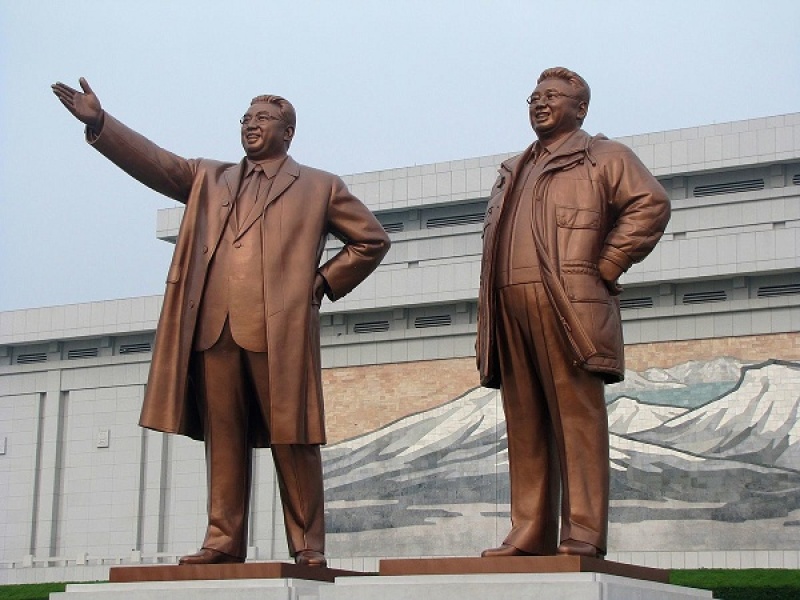

Tuesday morning marks the 20th anniversary of the death of Kim Il-Sung, the first leader and creator of North Korea. To commemorate his life and death, President Kim Jong-Un held a memorial meeting at the capital of the country.
Kim Il-Sung's death came unexpectedly, as he showed no signs of ill health leading up to it. The Wall Street Journal article at the time shows that many believed the death of this leader would mean the end of this country's existence.
"The death of Kim Il Sung could lead to the collapse of North Korea," the first line reads. The article goes on:
"U.S. officials believe Pyongyang's Communist regime might fall within months of the death of its creator. The North Korean economy is in shambles, with output falling and people hungry. Intelligence analysts believe that Kim Jong Il, the late leader's son and designated successor, is less stable and less popular than his revered father. As a result, China, virtually the only friend of the brutal, isolationist regime, will be less likely to protect its quirky Communist neighbor."
Little did they know that the Kim family's regime would last for at least another twenty years.
Although Kim Il-Sung's rule has left a painful and fearsome legacy, Kim's parents were actually known to be devout Christians. His grandfather on his mother's side was a Presbyterian pastor, and his father was preparing to be a missionary. Pyongyang itself is known to have been a city in which Christianity flourished and westernized more quickly than other parts of Korea.
Despite the gospel-centered roots of Pyongyang and Kim's family, an unfortunate series of events led to the split of Korea.
As Japanese imperialism officially ended in 1945, the U.S. and the Soviet Union decided to split up control of the country, with the latter taking control over the north, and the former taking control over the south. Both of the powerful countries set up their own Korean leaders who shared their political views, Kim Il-Sung being the Soviet-appointed leader for the North. Thus started the division of the country, the Korean War, and the official creation of North Korea.
While Kim Jong-Un's regime has also proved to be fearsome, with his purging and other efforts to gain full control, there is no telling where North Korea's history will go from here. As Liberty in North Korea states in their website,
""¦ North Korea's history is far from over. The people are becoming increasingly empowered and the grassroots changes spreading across North Korean society are steadily separating the people from the regime, meaning the system as it stands is ultimately unsustainable. We cannot know North Korea's future path, but what is certain is that it will be driven more by the North Korean people than ever before."

















